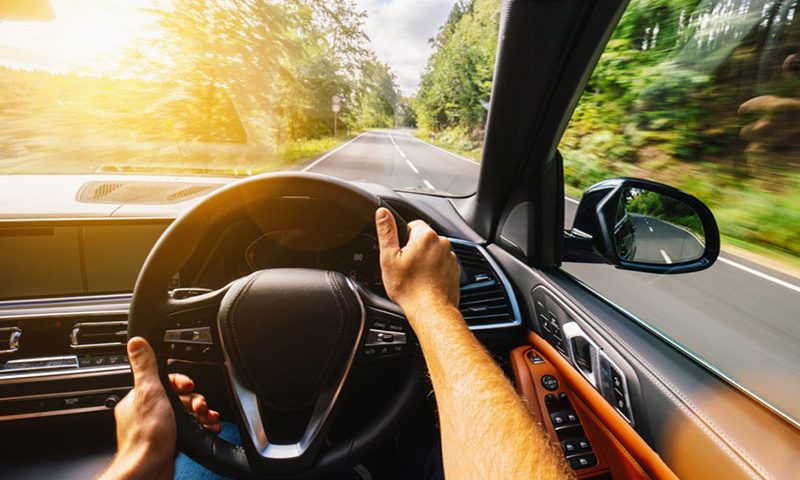Essential summer driving tips

After months of being locked inside, the country is finally reawakening and we can’t wait to take advantage of summer.
Many Brits are planning to take their summer holidays by road this year – with 59% of prospective holiday-goers planning to keep their breaks within the UK.
So, we’ve put together some key summer driving tips to keep you extra safe when you get back on the roads…
1. Carry out your summer car checks
Before heading off on any long car journey, it’s important to carry out some quick but essential checks:
- Inspect your tyres
Checking tyre pressure is extra important in high temperatures – where underinflated tyres can become even more hazardous, increasing the risk of blowouts.
Your car’s recommended tyre pressure should be listed on a sticker inside the driver’s door. If not, you can usually find the specs in your owner’s manual.
- Check the oil
Oil checks are another essential part of year-round car maintenance. During the summer, low oil levels are more likely to cause damage, risking your car overheating in traffic.
- Top up the coolant
As the temperatures rise, your engine may need a little extra help keeping its cool.
Keep your car topped up with coolant during the summer to save your engine from overheating and causing serious damage to your vehicle.
2. Keep yourself hydrated
Dehydration can have a serious impact on your driving ability, causing loss of focus, dizziness and even muscle cramps.
You should always set out with enough water to complete your journey, along with snacks to keep your blood sugar levels up if you get stuck in traffic.
However, while it’s not illegal to eat or drink behind the wheel, you could still be charged with careless driving if the police consider you to be out of control of your vehicle. Penalties for careless driving could land you with a £100 on-the-spot fine and three points on your licence.
3. Manage your hay fever
If you’re one of 13 million people in the UK who suffers with hay fever, you’ll know that an itchy nose can be a real irritation on the road.
Keep hay fever at bay by having the windows open while driving, stocking up on tissues and finding some medication that won’t affect your concentration and ability to stay safe.
4. Protect your eyes
Don’t get blinded by the glare! Driving directly into the sun can play havoc with your eyes, especially in the early morning or late evening when the sun is lower in the sky.
Storing a good pair of polarized sunglasses in your glovebox will stop you getting caught out on sunny drives. They’ll also help protect your eyes from fatigue, so you feel more alert on summer roads.
5. Wear the right footwear
When the weather’s hot, it can be tempting to forgo a change of shoes before getting into the driver’s seat. However, many aren’t aware that driving barefoot or in flip-flops could land you with fines of up to £5,000, not to mention nine penalty points on your licence.
Rule 97 of the Highway Code states that drivers should wear “footwear and clothing which does not prevent you using the controls in the correct manner”.
Flip-flops and sandals don’t offer the same level of control as other shoes such as trainers, so you risk them sliding off the pedal or wedging themselves underneath – causing obvious safety issues.
6. Plan your route
Long car journeys can be stressful, especially if you have younger passengers on board. That’s why it’s always best to plan your route in advance.
Plot out your journey to avoid busy travel times and congested roads where possible, giving yourself plenty of leeway time-wise should you hit unexpected traffic. You should also plan to take regular driving breaks to stretch your legs, rest your eyes and have a snack.
Remember, it’s against the law to touch your phone or Satnav while your engine is running. This means you’ll need to programme your route before setting off, or risk a £200 fine and six points on your licence.
7. Prepare for a breakdown
Despite doing all your vehicle checks, sometimes a breakdown is simply out of your hands.
Prepare for the worst by making sure you have all these breakdown essentials with you while you travel:
- Charged mobile phone
- Warning triangle
- Torch
- Food and water
You should also make sure that your insurance and breakdown cover are up-to-date before setting out on your road trip.
Can’t wait to get back on the road? Here’s all the ways driving is set to change after Coronavirus.


